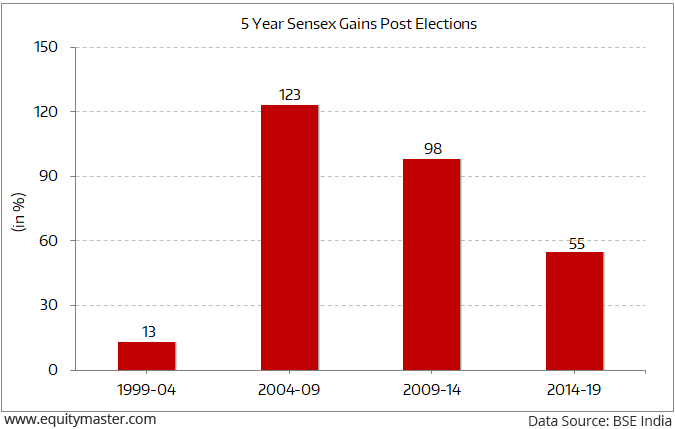- Home
- Todays Market
- Indian Stock Market News June 11, 2019
Sensex Opens Marginally Up; Metal and IT Stocks Gain Tue, 11 Jun 09:30 am
Asian share markets are higher today as Chinese and Hong Kong shares show gains. The Shanghai Composite is up 1.7% while the Hang Seng is up 0.8%. The Nikkei 225 is trading up by 0.4%. US stocks extended their recent climb on Monday, with the Dow reaching its longest daily winning streak in 13 months after the United States dropped plans to impose tariffs on Mexican goods and a couple of multibillion-dollar deals boosted the market.
Back home, India share markets opened marginally higher. The BSE Sensex is trading up by 82 points while the NSE Nifty is trading up by 31 points. The BSE Mid Cap index and BSE Small Cap index opened up by 0.2% and 0.1% respectively.
Barring realty stocks and telecom stocks, all sectoral indices have opened the day on a positive note with metal stocks and IT stocks leading the pack of gainers.
The rupee is currently trading at 69.48 against the US$.
The rupee surrendered all its early gains and closed 19 paise lower at 69.65 against the US dollar Monday amid strengthening of the greenback against Asian currencies and rising crude oil prices.
At the interbank foreign exchange (forex), the domestic currency opened at 69.40 a dollar and gained further strength to touch a high of 69.38 during the day.
The domestic currency, however, could not hold on to the gains and fell to 69.68.
The rupee finally settled at 69.65 a dollar, down 19 paise over its previous close. The Indian unit had settled at 69.46 against the US dollar Friday.
Reportedly, Indian rupee was unable to hold the morning gains amid higher crude oil prices and stronger dollar against Asian currencies.
The dollar index, which gauges the greenback's strength against a basket of six currencies, rose 0.3% to 96.87. However, gains in domestic equities and foreign fund inflows supported the rupee and capped its losses to some extent.
Speaking of currencies, Vijay Bhambwani, editor of Weekly Cash Alerts, tells you the main reasons why not to trade commodities and currencies the same way you would trade equities. Here's an excerpt of what he wrote...
- Currencies are traded in pairs and the most liquid is the USDINR. Currencies are traded in four decimal points just as bonds are. The international derivative traders association has indicated that forex may be traded in 6 decimals in the coming few years.
It takes months sometimes for the currency pair to pass the next round figure, say from 70 to 71.
Can you really trade commodities and currencies alike or for that matter, equities and currencies alike? Definitely not!
To know more, you can read Vijay's entire article here: Is Trading in Equities, Commodities, and Currencies the Same?
Moving on to the news from the economy. Equity mutual fund inflows in May shrank by more than half from a year ago due to uncertainty over the outcome of the 17th Lok Sabha election.
According to the Association of Mutual Funds in India (Amfi), net inflows into equity mutual funds in May was Rs 49.7 billion, down 56.2% from Rs 113.5 billion a year ago.
In a small relief, May inflows were 17.4% higher from April, a month when inflows had plunged 64% to the lowest in 31 months on election uncertainty, rating downgrades and a rise in crude oil prices.
Domestic institutional investors including mutual funds and insurance companies who were net sellers of Indian equities till May bought shares worth Rs 53.2 billion.
They were net sellers worth Rs 165.7 billion till April. Foreign institutional investors, which have been upbeat on India, bought Indian shares worth US$1.4 billion in May.
Notably, Indian markets have been on the rise since the Narendra Modi-led coalition won a massive mandate to form the government for the second consecutive time.
There is widespread optimism that a combination of monetary stimulus and structural reforms may help revive the economy. In May, the benchmark Sensex rose 1.8%. In the year so far, Sensex has gained over 10%.
So, by the next elections in 2024, will Sensex touch 1,00,000 mark?
Does Sensex 1,00,000 sound outrageous from where we are right now?
Even Sensex 40,000 would have seemed the same from around 5,000 levels in May 2004.
History indicates a healthy rise in Sensex post elections. In the three elections prior to this, we have seen a government come back to power, and change hands but the Sensex has moved one way i.e. upwards.
Will the Sensex Be Close to 1,00,000 By the Next Election?
And now, with a stable government at the centre, the pace might pick up.
Co-head of research, Tanushree Banerjee believes there are 50 irreversible trends that will the push Sensex to 1,00,000.
And these 50 trends look set to play out soon.
The ride might have already begun looking at the stock market's reaction to the election results.
But it is still early days. And the time to hop on to the ride is right now!
To know what's moving the Indian stock markets today, check out the most recent share market updates here.
For information on how to pick stocks that have the potential to deliver big returns, download our special report now!
Read the latest Market Commentary



Equitymaster requests your view! Post a comment on "Sensex Opens Marginally Up; Metal and IT Stocks Gain". Click here!
Comments are moderated by Equitymaster, in accordance with the Terms of Use, and may not appear
on this article until they have been reviewed and deemed appropriate for posting.
In the meantime, you may want to share this article with your friends!